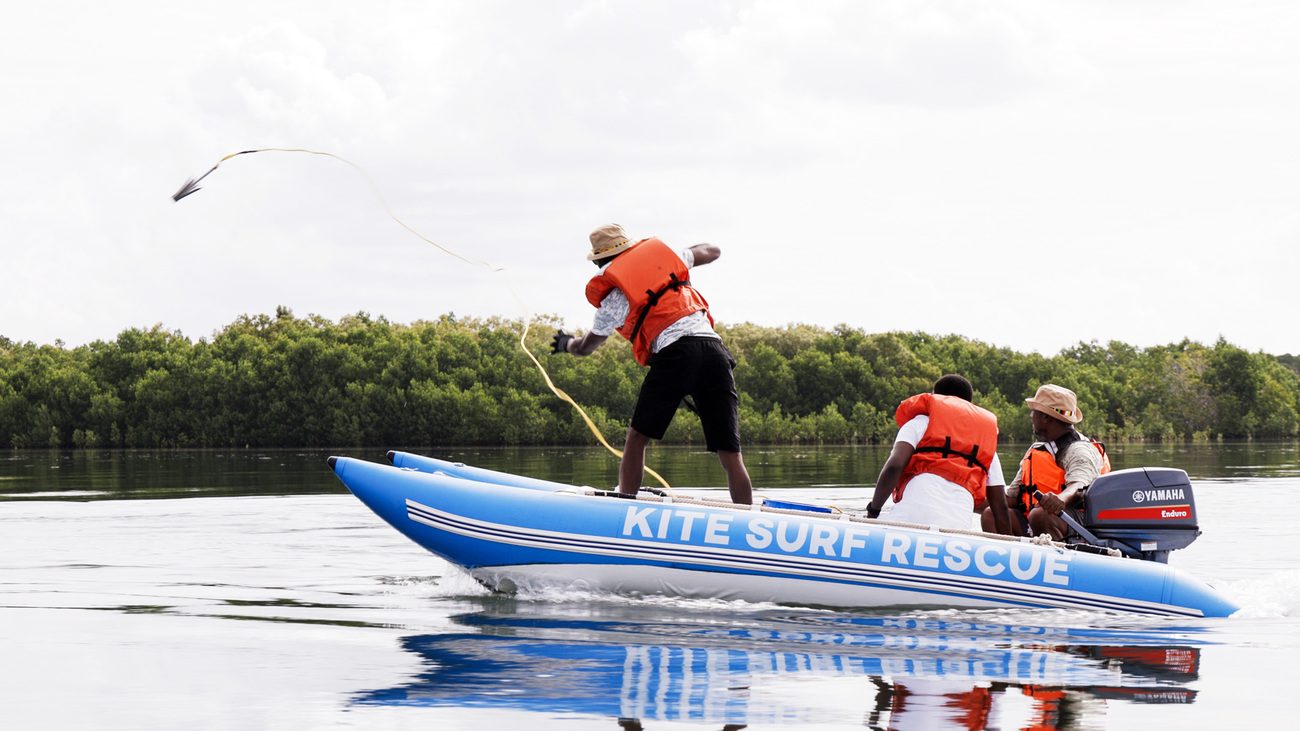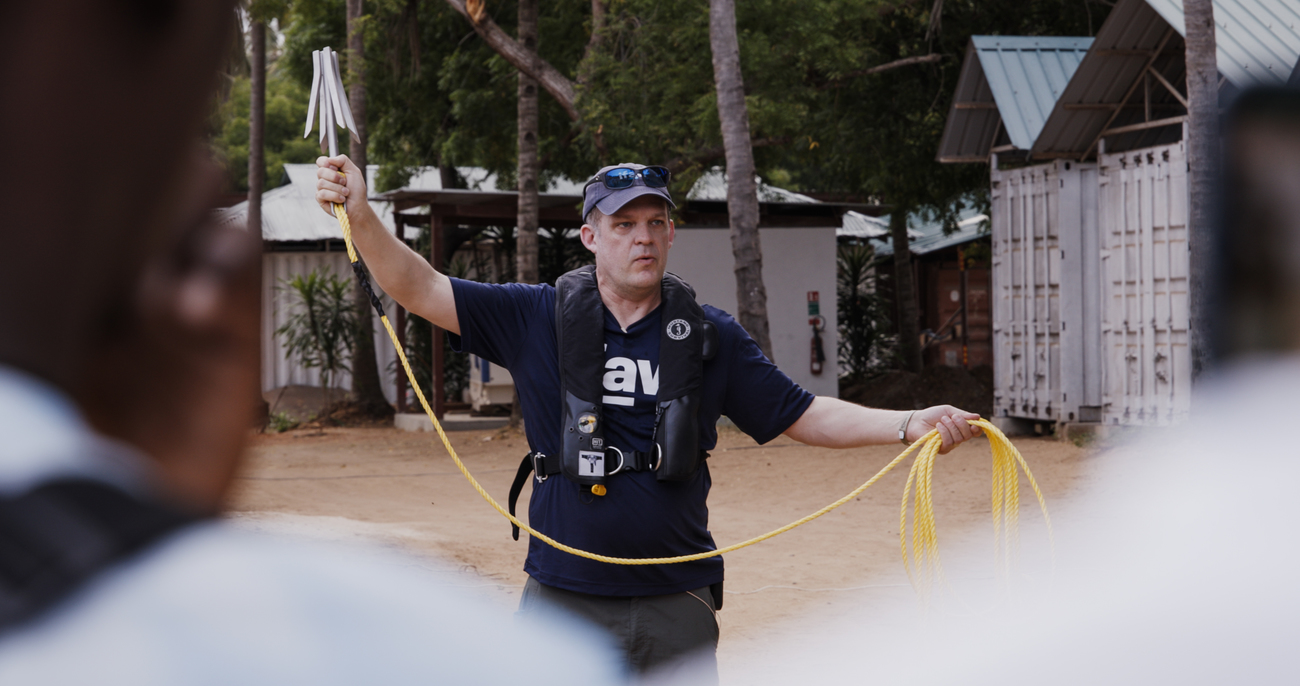Blog
A fragile start for a young rhino in Kaziranga
Read moreGhost gear: the silent killer of whales, seals, and sea turtles

More than one million tonnes of plastic end up in the ocean every year and endanger animals like sea turtles, whales, seals, seabirds, and dolphins. One all too common source of plastic pollution is from lost or discarded fishing gear. Abandoned ropes, lines, and nets float aimlessly through the ocean and become entangled around any animals that happen to be in their path.
Entanglements are often a death sentence for marine animals—a slow, painful one, at that. It kills hundreds of thousands of marine mammals and sea turtles worldwide every year.
That’s why IFAW is working around the world to promote preventative measures that will protect marine life—and we’re also on the frontlines of pioneering entanglement response.
How does entanglement impact animals?
Fishing gear, both abandoned and actively used, can restrict animals from eating, causing them to starve, or prevent them from swimming to the surface to breathe, leading to drowning.
With their swimming abilities impaired, some entangled animals are unable to avoid boats and ships, and they die from vessel strikes. Entangled animals can also suffer injuries from the fishing gear wrapping around them so tightly that it cuts into their skin, muscle, and bone. These wounds can lead to serious infections and death.
While smaller animals like turtles, seals, porpoises, and dolphins might drown immediately when stuck in large, heavy gear, larger whales may be more likely to suffer from exhaustion and infection. Death by entanglement could take weeks, months, or even years.
What types of animals are impacted by entanglements?
Entanglement is a major issue for all marine mammals, especially cetaceans (whales, dolphins, and porpoises). It’s estimated that 300,000 cetaceans die every year from entanglement.
Of the about 370 remaining critically endangered North Atlantic right whales, more than 85% have experienced at least one entanglement in their lives. Not all of these are caused by ghost gear—often, they become tangled in fishing gear that’s actively being used. Many of these whales are still entangled in ropes and lines, as it is extremely difficult to disentangle a large whale. IFAW’s experts are some of only a handful of organisations licensed to disentangle North Atlantic right whales.

Seals and sea lions are also seriously impacted by entanglement, as are sea turtles. Even birds and fish can be impacted by ghost gear and bycatch, the accidental catching of non-target species when fishing.
But entanglement doesn’t just impact the animals that become caught in nets and ropes—it affects entire ocean ecosystems. Every species is an important part of the food web and necessary for the survival of other animals and plant life in their environment.
For instance, without whales, the imbalance in the food chain would have dire consequences for sharks, large fish, and seabirds. Eventually, a lack of whales in the ocean could damage the fish stocks relied upon by the fishing industry and coastal communities.
How to prevent entanglements
One promising solution to the entanglement crisis is ropeless fishing gear. Traditional fishing equipment involves ropes that hang from the ocean’s surface, connected to nets or traps far below. Ropeless gear removes this vertical line—instead, equipment is lifted to the surface using a pop-up buoy, inflatable lift bag, or buoyant spool. Not only does it help protect marine animals, but it also allows fishers to work in areas otherwise closed off for whale migration.
In a related effort, IFAW and partners are testing Smart Buoy technology in the Gulf of St. Lawrence. Smart Buoys can be used to help locate ropeless gear in fog or inclement weather. They can also notify a fisher quickly if a whale or other animal gets entangled in traditional gear, if gear gets moved due to a storm, or if buoys are cut loose by another vessel—preventing the creation of ghost gear.
In Kenya, IFAW is working with coastal communities to improve waste management as a strategy to reduce marine debris, preventing Kenya’s diverse marine life from getting caught in discarded fishing gear and keeping their habitats clean and safe.
IFAW’s marine mammal rescue team has also helped to develop methods of sedating whales in order to disentangle them, and we’ve partnered with the Marine Mammal Center in California to pioneer new methods of disentangling seals.
In March 2024, our team facilitated the first marine mammal rescue workshop in Kenya, training fishermen, beach management units, marine rangers, and others in entanglement and stranding response. Rescuing an animal that’s up to 15 times the size of a human is no small feat—but we taught participants how to safely and effectively remove tangled fishing lines from whales.
Our work can’t get done without you. Please give what you can to help animals thrive.
Unfortunately, the browser you use is outdated and does not allow you to display the site correctly. Please install any of the modern browsers, for example:
Google Chrome Firefox Safari